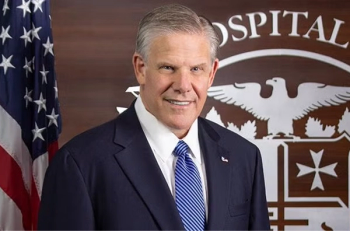
Lessons from living with MS for 30 years | Healthy Bottom Line podcast
Brenda Snow, founder and CEO of Snow Companies, has written a new book about her patient journey. She offers advice for patients and their loved ones.
Brenda Snow’s advocacy for patients is driven from her own personal experience.
Snow was diagnosed with multiple sclerosis 30 years ago. Driven by her own interactions and frustrations in dealing with the healthcare industry, she founded Snow Companies, a marketing company that engages patients and works with a host of pharmaceutical firms.
She’s also the author of a new book, “Diagnosed: The Essential Guide to Navigating the Patient Journey.” Snow talked about the book and her many years of experience as a patient in the latest episode of Healthy Bottom Line, a podcast from Chief Healthcare Executive®.
“I thought, I need to write the book for patients that I wish I had when I got diagnosed,” Snow says. “How are you going to feel? How are you going to talk about it? What the hell is going to happen to you? All the things, and ultimately move people forward on their journey, because everybody deserves a life of meaning and purpose and beauty, and that is sort of the gift I hope this book inspires people that are living with a serious medical condition to get to.”
Snow was diagnosed with MS in the 1990s, and talks about the difficulties she had in dealing with the disease. She had to find new doctors, saying, “The healthcare team I had at the time was not the right team for me.”
She says that’s an important lesson for patients if they are dealing with clinicians who aren’t meeting their needs or listening to them. Some patients are hesitant to switch doctors because it can mean a lot of work, or they are worried about offending their physician. Some patients who are a little bit older also have the mindset that “the doctor is always right,” she says.
Patients may want to ask several questions if they are having second thoughts about their doctors, Snow says. She said patients should ask themselves, “Do you have access? Are they responsive to you in a timely fashion? When you are going for your in-person meetings, are all your questions being answered?”
Snow also suggests reaching out to the care team a week before an appointment with a few top issues to address in the visit. If patients don’t see their questions being addressed, then they can tell their clinicians that they need to evolve to meet those needs, or they’ll look for another care team.
Too often, patients are encountering situations where different members of the care team aren’t communicating with each other, such as a specialist not talking to the physician about tests, Snow says.
“You're sort of operating under the assumption that with your electronic medical records … that they are all talking, and then you get there and you find out that they haven’t. And then you spend your whole appointment briefing everybody right on this. And then your list of stuff you wanted to come for doesn't happen, because time's up, and it leaves you very frustrated and tired,” she says.
Snow suggests patients with serious illnesses or conditions bring loved ones to appointments with doctors to keep track of the visits, help with asking questions and offering support. For those who don’t have a partner or close family member nearby, Snow urges patients to ask a friend.
“Somebody out there loves you,” she says. “And you might have to ask somebody that you didn't really think would fit the role. But if you need that again, speak up for yourself.”
Snow says the vast majority of healthcare workers are “heroes,” but a recent overnight stay in the hospital illustrated some of the stresses in the system. She noticed staff that seemed stressed and appeared overworked. She also noticed other patients were frustrated by not being able to talk to loved ones.
With healthcare workers who are swamped, Snow says, “It's certainly an area that you, as your own best advocate, have to push."
Check out the full podcast for more insights on Brenda Snow’s journey, more advice for patients and insights on the healthcare system. Subscribe to Healthy Bottom Line so you won’t miss an episode. In the coming weeks, look for more stories and podcasts from Chief Healthcare Executive® highlighting the patient experience.






























